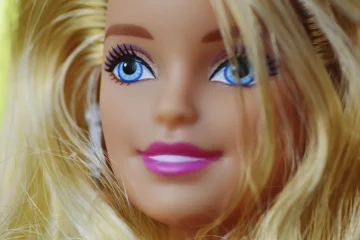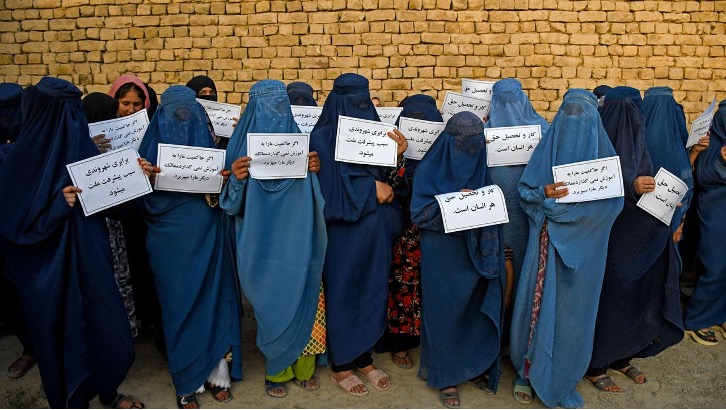by Dr. David Sanders
On the insistence of my wife and daughters, I went to see Barbie. Barbie? Why? I knew more about that doll than them. My sister had Barbie dolls and at some point a Ken doll. Barbie was not part of the culture my wife grew up in and our daughters never expressed an interest in dolls, let alone Barbie dolls. Barbie? Why?
When I arrived, there were a few men seated in the theater. I was surrounded by women and girls of all ages, almost all in Barbie-like dress up. After the movie was over, I went over to a group of young women, in their thirties, some of whom had tears in their eyes. They explained that the film gave voice to what they felt it was like for women to live in a man’s world. Barbie, the film, is a contrived and very clever depiction of the patriarchy. As useful as it is as a mirror for society, it does not address how we got here.
In the Human Narrative class (Year 3) our discussion about gender begins with a question for both men and women to respond to: “At what age and in what way did you first realize that this is a man’s world?” There has never been any student who has pushed back on the premise of this question because it is a given, “we all live in a man’s world.”
To broaden the question we can ask: What is the genesis of the patriarchal story that is the dominant human narrative regarding gender for the last 10,000 years? In his book Sapiens, Yuval Harari offers many possible answers to What’s So Good About Men? but in the end rejects them all and concludes that “at present we have no good answer.” Feminists, though, have proposed an answer and that answer is already foreshadowed in the Biblical story of Eve and Adam in the Garden of Eden.
Based on that narrative in Genesis, I would like to propose a script edit to the film Barbie in which Margot Robbie (Barbie) and Ryan Gosling (Ken), instead of traveling from Barbie land to the “real world” of California and Mattel Headquarters, go back in time to the Garden of Eden, located somewhere in the Colorado Rockies. It is as idyllic and simplistic a setting as Barbie land, just without all the pink overtones.
Barbie: “Hey Ken, do you remember when Ma-Tell warned us: ‘If you eat from that tree you are going to die?’ Have you ever thought about death? What is it?”
Ken: “Listen Barbie. Why contemplate what we can’t possibly know anything about?”
Barbie: “Well, if we eat from the fruit of that tree we might know something about death. I’m ready to find out. Are you?”
Ken: “You go ahead and take the first bite. I’m risk averse.”
Barbie plucks an apple. Takes a bite. Doesn’t die. She has a vision of the passage of time, her body aging, wrinkles and all, and then a long sleep.
Barbie: “Ken, I see…death. It is a part of life. You and I are going to die.”
Ken: “Ok, Barbie. Did the apple taste good or bad?”
Barbie: “Both. I’m feeling a bit queasy.”
Barbie begins to swoon and Ken breaks her fall. He takes the apple and bites into it.
Ken: “Hey Barbie, you ever wonder how these trees came to be? And what is this little brown thing that is stuck in my teeth?”
Barbie: “Well, Ken, have you ever questioned how we came to be? The way Ma-tell tells it, we came from her imagination.”
Ken: “I wonder if this little brown thing in my teeth holds a clue? I’m going to stick it in the ground and see what happens.”
Barbie and Ken have a look of amazement as a tree emerges from the earth.
Barbie: “Well, that was unexpected! Let’s call that a seed.”
Ken: “Not just a seed, Barbie. That was my seed.”
Barbie: “Why is it your seed? It’s our seed.”
Ken: “It’s mine because I found it and I put it into the ground. I will market it as Adam’s apple.”
This realization that apples weren’t just “there” but could be produced by the “sweat of my brow” led to other revelations about “my seed.” My apple extended to my land, to my sheep, to my baby, to my woman “and your husband will rule over you.” Patriarchy was born.
And the result today, after thousands years of this ownership seed being planted as a story and supplanting the story of gender equality is (stereotypical) Barbie and this:
Afghan women in burqas holding placards to protest for their right to education Aug, 2023










2 Comments
Clare Rosenfield · August 17, 2023 at 2:57 pm
That was a fascinating and amusing interpretation of how patriarchy came to be!
Bettina Kurowski · August 17, 2023 at 8:51 pm
Great analysis. And putting my name in the headline is a sure way to get my attention.